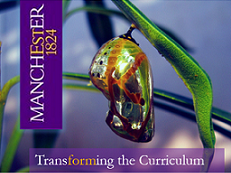Everyone Should Involve In Educating For Sustainability; WHY? by Mei Ting Yang
I am an English teacher teaching young learners (under 12) English in an educational institution in Taiwan. Before I studied the MA course, Educating for Sustainability, in the University of Manchester, I had never paid attention to sustainability issues in my daily life. Moreover, I had no idea about the importance of EFS (Educating for Sustainability). Teaching sustainability was totally new for me as the curriculum we had in Taiwan did not focus on this area. Thus, I did not understand why language teachers should teach sustainability and what and how it might influence the young learners in my context.

However, after exploring readings in relation to EFS and taking part in the course, I realized that it is necessary to teach and learn sustainability in my context. Unlike the exam-focused curriculum we had which only focused on how to equip young children the abilities to get good jobs, EFS could teach the young children how to face the possible challenges they might encounter in the future and how to protect the environment for a more sustainable world.
Besides, EFS has redefined the role of schools that they are not only places for learners to learn but also for adult teachers and the community to interact and learn together.
“Education for sustainability seeks to equip learners to deal with the kinds of challenges that arise from the interconnectedness of environment, culture, society, and economy and that seem to typify life in the 21st century.”
(Nolet, 2015, p.7)
“The goal of sustainability has redefined the role of schools and their relationship with the community. The focus has shifted beyond ‘what to teach students’ and ‘how they are behaving’ to seeing schools as a focal point where children, adults and the community interact and learn together.”
(Henderson and Tilbury, 2004, p.8)
“For now, we should set our sights on creating a more positive future—one that includes more of what’s better and less of what’s worse. Quite simply, our collective goal today must be to create the conditions that foster the health and well-being of all . . . forever.”
(Nolet, 2015, p.3)
These are the things we need to know as everyone is responsible for sustaining the environment for our future.
We must learn and teach sustainability. If we don’t, we cannot survive!

Looking at the current curriculum
In my context, teaching and learning sustainability was difficult as the exam-focused curriculum forced the students to only pay attention to certain subjects. For example, when I was studying in high school, the school had an Environmental Science class which designed for teaching students about the environment and sustainability issues.
However, the class was often canceled by our homeroom teacher because she needed extra time to teach us exam-focused materials for preparing exams. This situation happened to me ten years ago and is also happening to the young generation now. The young learners seldom have opportunities to learn sustainability in the current exam-focused curriculum since most of them are overloaded with schoolwork for preparing for their future study or career.
Thus, they do not know why sustainability is important and why should they involve.
How can language teachers teach sustainability in my context?
What I might suggest my institution is to use a whole school/institution approach to teach sustainability.
What is a whole school/institution approach?
“Whole-school approaches: to sustainability incorporate all elements of school life such as: school governance, pedagogical approaches, curriculum, resource management, school operations and grounds. Whole-school approaches can imply links and/or partnerships with the local community. “
(Henderson and Tilbury, 2004, p.11)
This approach requires all fields in the institution to work together to achieve the goal but in this blog I will only focus on one field which is curriculum. As I mentioned earlier, the design of the current curriculum does not allow young learners to have opportunities to learn sustainability. However, as to change the whole curriculum is challenging thus we could start by adding sustainability materials into the current curriculum.
For example, in speaking class, teachers might design a storytelling activity to encourage students to think sustainability in many ways. Teachers could provide pictures of sustainability issues to invite the students to think of possible results and tell stories. Or, instead of giving them pictures, ask the students to think of possible sustainability issues we are having now in groups and tell stories.
Furthermore, teachers could play a short video related to sustainability and paused in the middle to invite students to tell stories about what will happen later. I think this idea could make the class speaking practices more interesting and meaningful as the learners could not only practice speaking but also learn sustainability through storytelling.
This is only one part of a whole institution approach. I expect that the government, the institution and the parents could understand the importance of EFS thus facilitate each other to support sustainability education as well.
Unlike the exam-focused curriculum often relates a child’s ‘future’ to their future success in career and higher education. Educating for Sustainability connects a child’s ‘future’ to the world we live in. For our next generation, everyone should be involved in Educating for Sustainability!
References:
Henderson, K and Tilbury, D. (2004) Whole-School Approaches to Sustainability: An International Review of Sustainable School Programs. Report Prepared by the Australian Research Institute in Education for Sustainability (ARIES) for The Department of the Environment and Heritage, Australian Government.
Nolet, Victor. Educating for Sustainability, edited by Victor Nolet, Taylor and Francis, 2015. ProQuest Ebook Central, http://ebookcentral.proquest.com/lib/manchester/detail.action?docID=2166420.
Here are some animation videos which are good for teaching young learners sustainability:
It’s the Little Things – short sustainability animation
The secret Life of Things SUSTAINABILITY animation — Life Pscycle-ology
Sustainable development for kids

